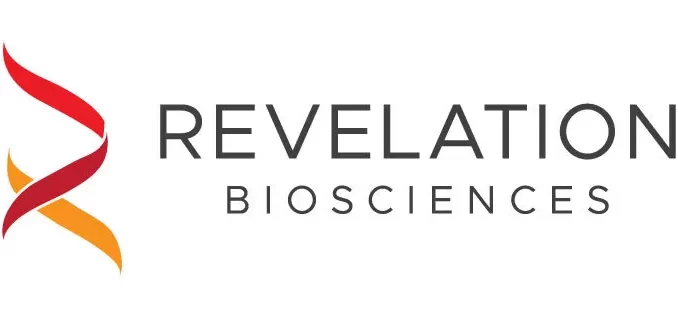
-Gemini administration induced statistically significant, dose dependent changes in key biomarkers of activity-
-Gemini was safe and well tolerated at pharmacologically active doses-
-Phase 1 results enable further development across multiple indications-
SAN DIEGO, June 24, 2024—Revelation Biosciences, Inc. (NASDAQ: REVB) (the “Company” or “Revelation”), a clinical-stage life sciences company that is focused on harnessing the power of trained immunity for the prevention and treatment of disease, today announced safety and biomarker data for its Phase 1 clinical study (RVL-HV02). The primary endpoint to evaluate the safety and tolerability of escalating doses of Gemini was met and a maximum tolerated dose in healthy volunteers was identified. Additionally, statistically significant dose dependent upregulation of key biomarkers demonstrating the immunostimulatory preconditioning effect of Gemini were observed. The study, which enrolled 40 healthy individuals 18 to 55 years of age, was conducted in Australia and evaluated escalating doses (placebo, low, mid and high dose) of intravenously administered Gemini.
Administration of Gemini induced significant, dose dependent changes in key circulatory biomarkers of activity that reflect the expected pharmacology of Gemini-specific toll-like receptor 4 (TLR4) stimulation. Intravenous Gemini induced significant increases in interleukin-1RA (IL-1RA) (p<0.001 at mid and high dose, Figure 1), neutrophil gelatinase lipocalin (NGAL) (p<0.01 at mid and high dose, Figure 2), c-reactive protein (CRP) (p<0.001 at mid and high dose, Figure 3), and IL-6 (p<0.01 at high dose, Figure 4). Significant, dose dependent mobilization of innate immune cell populations was observed, specifically neutrophils (p<0.001 at mid-dose and high dose) and monocytes (p<0.001 at mid and high dose). Importantly, Gemini administration did not induce significant increases in serum TNF-α (p=0.51 at the highest dose) and IL-1β (p=0.89 at the highest dose). This attenuated pro-inflammatory activity and corresponding significant upregulation of beneficial cytokines is unique to Gemini and facilitates the reprogramming of the innate immune response for resolution of inflammation and promotion of the healing process.
These changes in biomarkers are consistent with the changes observed in preclinical models in which Gemini demonstrated remarkable activity (ischemia/reperfusion model of acute kidney injury and unilateral ureteral obstruction model of kidney injury) and are highly predictive of clinical efficacy, thus demonstrating the potential for Gemini in our target indications including prevention of AKI following cardiac surgery and prevention of infection following surgery.
Figures 1 through 4 illustrate the reprogramming of the innate immune response after Gemini administration in multiple biomarkers of TLR4 stimulation. IL-1RA has anti-inflammatory properties, as it binds to the IL-1 receptor, blocking IL-1α and IL-1β, major drivers of the inflammation cascade. NGAL sequesters iron and is an important defense for preventing excessive oxidative damage resulting from injury and/or ongoing inflammation. CRP plays an important role in resolving acute inflammation through increased phagocytosis, clearing cellular debris. IL-6 at low concentrations facilitates multiple activities associated with the resolution of inflammation, including stimulation of IL-1RA and IL-10. IL-10 levels trended higher with increasing dose but did not reach significance vs placebo (data not shown). While significance was not observed at the time points evaluated, IL-10 activity is inferred by the significant upregulation of IL-1RA as well as the lack of significant upregulation of TNF-α, as both activities are impacted by IL-10.
Gemini administration was generally well-tolerated. The frequency and severity of adverse events corresponded with increased dose, with the mid-level dose being established as the maximum tolerated dose in healthy volunteers. Adverse events observed included transient headache, chills, body aches/pain, and vomiting, and are consistent with preclinical findings and the expected pharmacology of the drug. Gemini administration did not result in significant changes in clinical safety markers (e.g. markers of organ function including creatinine, BUN, etc.) or hematologic parameters (aside from immune cell mobilization). There were no clinically significant findings with other safety measures including vital signs, ECG, urinalysis and physical exam. These results and the maximum tolerated dose will be used to guide dose level selection in a planned randomized, placebo-controlled Phase 1b study in patients with chronic kidney disease.
“We are pleased that the biomarker data generated in healthy volunteers is consistent with our preclinical studies. This confirms the potential utility of Gemini as a single-dose preconditioning therapy in our target indications.” said James Rolke, Chief Executive Officer of Revelation. “With this new data, we are excited and committed to moving rapidly into a Phase 1b study in patients late 2024.”
For more information on Revelation, please visit www.RevBiosciences.com.
About Gemini
Gemini is the Company’s proprietary formulation of phosphorylated hexaacyl disaccharide (PHAD®), a toll-like receptor 4 (TLR4) agonist. TLR4 stimulation with PHAD potentially preconditions the innate immune system to respond to a subsequent stress, such as ischemia (loss of blood flow) or bacterial infection. Gemini is initially being developed as a single dose preconditioning therapy for two target indications: as a pretreatment to prevent or reduce the severity of acute kidney injury due to cardiac surgery (GEMINI-AKI program) and as a pretreatment to reduce the incidence, duration, and severity of post-surgical infection (GEMINI-PSI program). In addition, Gemini has the potential to be a long-term treatment to stop or slow the progression of chronic kidney disease (GEMINI-CKD program). Revelation believes Gemini works through trained immunity, which redirects and attenuates the innate immune response to external stress (infection, trauma, etc.). Preclinical studies evaluating models of AKI or bacterial infection have demonstrated pretreatment with Gemini can reduce the severity and duration of AKI or bacterial infection, respectively. Additionally, preclinical studies evaluating a model of CKD demonstrate the potential of Gemini as a treatment to prevent kidney tissue scarring following the onset of severe inflammation.
About the Phase 1 Study Data Analysis
For all reported biomarkers except IL-1RA, the reported p-values were based on a two-tailed t-test assuming equal variances between data sets and an alpha of 0.05 for the peak change from baseline in treated subjects (by dose vs peak change in baseline in placebo subjects). For IL-1RA, a two-tailed t-test assuming equal variances between data sets and an alpha of 0.05 using a binary responder analysis of no change vs baseline and change vs. baseline was used. For each analysis there were 9 subjects in the placebo group, 12 subjects in the low dose group, 13 subjects in the mid dose group and 5 subjects in the high dose group.
About Revelation Biosciences, Inc.
Revelation Biosciences, Inc. is a clinical stage life sciences company focused on harnessing the power of trained immunity for the prevention and treatment of disease using its proprietary formulation Gemini. Revelation has multiple ongoing programs to evaluate Gemini, including as a prevention for post-surgical infection, as a prevention for acute kidney injury, and for the treatment of chronic kidney disease.
